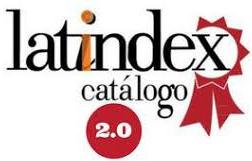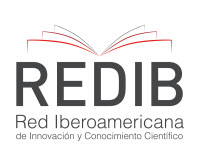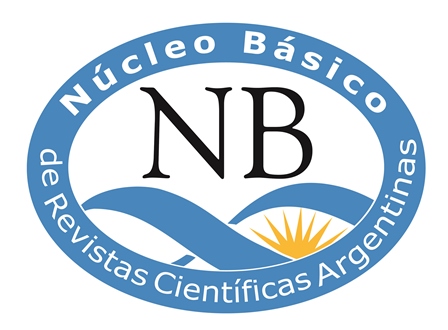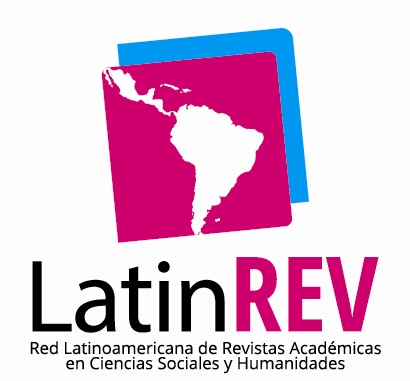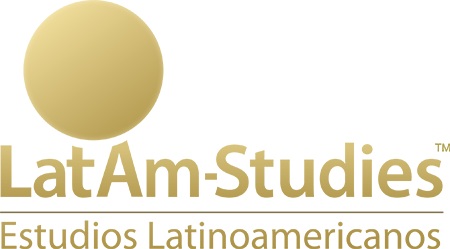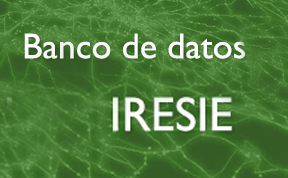Evaluation
Papers with request for publication must be original, unpublished and not submitted to other journals or organs of diffusion in whatever form. All articles undergo an external evaluation by pairs, under the double blind system, before being accepted for publication.
Evaluation process.
The editors make a first revision of the originals to ensure the thematic relevance and compliance with the edition standards of the journal.
If the article passes the first instance, the editors will select two national or international affiliation evaluators, external to UNL and UNLP, to review the article. They will be researchers and / or academics with recognized experience and suitability in the area of the article to be evaluated and with an academic level identical or superior to that of the authors of the same. The evaluators will have a time of twenty days to perform the evaluation of the article. Your opinion should be based on criteria of relevance, originality and academic quality established by the journal. These can suggest modifications related to the content, structure, methodology, data and / or bibliographical references that they consider significant and pertinent for the evaluated work. These should be based on criteria defined in the corresponding way, aimed at guiding and improving contributions. The reviewers, according to their evaluation, must select a decision among those defined by the journal that may be:
- Accept publication without changes. The article must be properly structured and developed and respond to the demands of the journal (originality, timeliness, be correctly written, contain a clear methodological development and a consistent analysis of the data, discussion with updated bibliography, etc.). If there is agreement among the different reviewers in the evaluation, the authors will be informed of the acceptance of the article and the planning of its publication. The article goes to the editing and style correction stage.
- Accept the publication with minor modifications. In this case, for articles that fall within the aforementioned parameters, it is necessary to make modifications of style, orthographic and typographic correction, or minimum content modifications. In this case, unless the evaluator requests it explicitly, the article will not need a new revision of the referendum on the modifications made. The editors will be in charge of monitoring that the suggestions made are incorporated into the text by the author. If the reviewers agree, once the modifications have been made, the article is accepted and passed to the editing stage.
- Accept the publication with major modifications. For articles that although considered within the aforementioned parameters, the evaluation requests to make important modifications as a requirement to be accepted. These modifications may refer to the content of the article, the structure, its wording, the incorporation of data and / or more substantiated arguments, bibliography, and so on. The opinions will be sent to the author (s) with the suggestions of the reviewers and this will have a lapse of 15 (fifteen) days to make the suggested modifications. Once the article modified by the author is uploaded again to the system, a second round will begin in which the reviewers who requested modifications will participate, which must endorse -or not- the same ones, in a period no greater than 10 (ten ) days. After this second round, if the article is approved in the modifications made, it goes on to the editing stage. If the evaluators consider that the suggestions have not been incorporated, the editors will be able to make the decision -according to the opinions and at their academic criteria-, to request new modifications to the author, or to reject it.
- Reject the publication. The evaluator considers that the evaluated article has important flaws and / or does not meet the minimum requirements to be published in the journal according to the rules of the same. If the evaluation of the reviewers agrees not to accept the publication of the article, the editors will inform the author / s of the decision through an email together with the opinions of the evaluators and / or an explanation of why their article is not relevant for publication.
Dispute resolution.
In case of disputes between the evaluators (an acceptance / rejection), the editors will request the opinion of a third referee. If the evaluation results in rejection and acceptance with major modifications, it will be evaluated if it is pertinent to request an opinion from a third referee or suggest the author rewrite his contribution and send it back. The editors have the final decision to publish, file or reject the received contributions. This decision is made under their responsibility and according to the analysis of the opinions and the controversies that may have arisen in them. They have the power to reject the contributions received in any instance of the process -even after having passed the stage of reviewers-, if any type of ethical fault or conflict of undeclared interests was detected. If the author is asked to make modifications, he / she must take into account the suggestions and observations of the evaluators and editors of the journal, and must undertake to make such modifications in a time not exceeding 10 (ten) days. The result of the evaluation and the decision of the journal will be communicated to the author within approximately two months. If it were to exceed that time, the author will be informed of the situation in which it is located.

